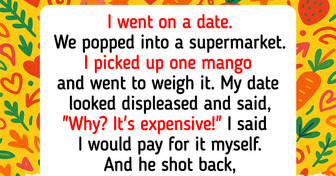Loss of a loved one is loss, I love my dogs like they are my children!
I Embarrassed My Rude and Insensitive Colleague, Now HR Is After Me
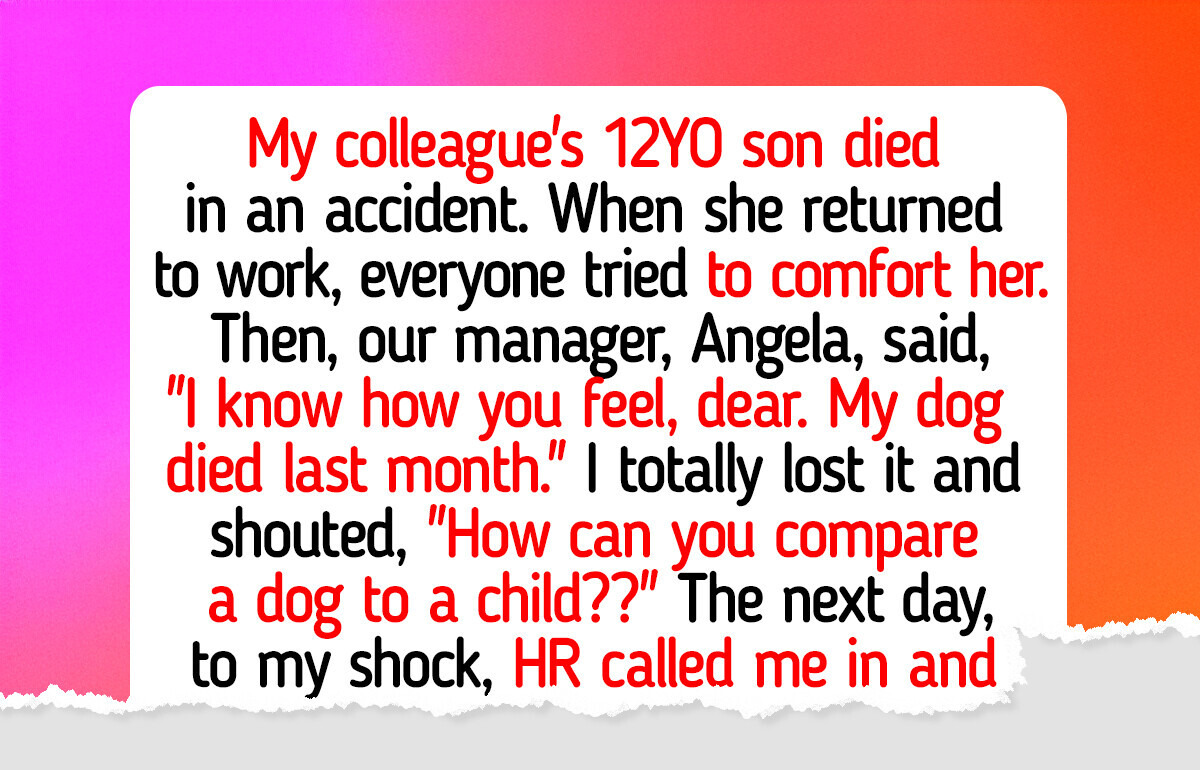
Here’s a story Camila shared with us in her email:
“Hi, <strong>Bright Side
I (32F) work in a mid-sized marketing company. I’ve been there for five years, same team the whole time. A few weeks ago, my coworker Trish came back to work after losing her 12-year-old son in a tragic accident. Everyone was walking on eggshells, trying to be supportive without overwhelming her. It was a heavy day, but we were all doing our best. Then Angela, our manager, walked up to Trish and said, I kid you not, ‘I know how you feel, dear. My dog died last month.’ The whole room went dead silent. Trish just nodded awkwardly, and I felt my blood boiling. Before I could stop myself, I said, ‘How can you compare a dog to a child?’
Angela’s face went blank, and then she just turned and walked away. I didn’t think it would turn into a big deal. Honestly, I thought I said what everyone was thinking.”
“But the next day, HR called me in. They said I had ‘ignored the company’s policy on team spirit and empathy’ and that I ‘failed to respect another employee’s feelings.’ Then they told me I had to apologize to Angela, because apparently I ‘humiliated’ her.
I was stunned. I tried to explain that I wasn’t trying to belittle her grief — I just thought her comment was insanely inappropriate and disrespectful to Trish. But HR didn’t care. The HR rep — who, side note, has four dogs and constantly talks about them like they’re kids — said if I didn’t apologize, they’d ‘take disciplinary measures.’ So now I’m sitting here wondering if I’m the crazy one. Was I really that out of line for reacting the way I did? Because it feels like I’m being punished for having basic empathy and common sense.
At this point, I love my job, but this company’s definition of ‘empathy’ seems totally upside down.
Would you apologize just to keep the peace, or is this a red flag big enough to start updating my résumé?”
Bright Side readers had a lot to say about Camila’s explosive workplace conflict:
- cappuccino_dreamer42:
Honestly, I get why you reacted that way. Losing a child and losing a pet are just not in the same category. You didn’t say anything cruel, you just said what everyone else was thinking but didn’t have the guts to voice. - milo.and.mint:
I think you were a bit harsh. Angela’s comment was tone-deaf, sure, but grief does weird things to people. Maybe she was just trying (and failing) to relate. HR still went overboard though. - TechDude_92:
Sounds like your HR department is full of people who just want zero conflict, even if that means punishing the wrong person. I’d start job hunting quietly. Once they pull the “disciplinary measures” card over something this small, it won’t stop there.

I understand why you said that and everyone was thinking it. The lady that lost her son should have gone to HR. I would apologize and say sorry that you lost your dog and leave it at that. There is a reason no one else said anything.
- ✿rainydaysonly:
I feel for Trish here. Imagine hearing your manager say that, and then your coworker getting in trouble for defending you. The emotional intelligence level in that office is wildly low. - archivist_x:
I actually think you could’ve handled it differently. Even if you were right, calling out your manager in front of everyone never goes well. A private word afterward might’ve had more impact. HR is still being ridiculous though. - BluejayByte:
This is classic corporate nonsense. They preach “empathy” but what they really mean is “don’t make anyone uncomfortable, even if they say something awful.” You weren’t wrong, you just broke the unspoken rule of pretending to agree with everything.
- tiredintern101:
Ugh, I’ve worked in places like that. HR acts like a moral referee but really just picks sides based on who they like more. The fact that the HR rep has four dogs and sided with Angela says it all. - MossyKeyboard:
I’m sorry but I can kinda see HR’s point. You made Angela feel small in front of others, and that does count as unprofessional. Even if you had a valid reason, that part’s on you. - pixelatedegg:
This whole situation sounds exhausting. I wouldn’t apologize for what you said, but I’d probably say sorry just to protect my paycheck. Doesn’t mean you’re wrong, it just means you’re smart enough to pick your battles.
Here’s what Bright Side editorial team would advise to Camila:
Dear Camila,
It sounds like you were the only one in that room who prioritized actual compassion over performative empathy. Unfortunately, workplaces often reward diplomacy over honesty, even when someone crosses a line. Your reaction came from a good place, but in corporate environments, tone can outweigh intent. If you decide to stay, consider requesting a private mediation with HR to clarify that your concern was about Trish’s comfort, not Angela’s feelings. That might help you regain some control over the narrative.
But also take this as a quiet wake-up call about your company’s values — or lack thereof. When leadership can’t distinguish between defending a grieving mother and “lack of team spirit,” that’s not a healthy culture. Document everything from now on; it’s your shield if they try anything further. And whether you apologize or not, don’t let this place convince you that empathy needs to be sugarcoated to be valid.
Kindness and empathy aren’t softness, it’s fire that melts the ice around a broken heart. These 11 stories remind us that gentle acts can change fates, rebuild lives, and turn ordinary people into quiet heroes the world almost didn’t notice.
Comments
Related Reads
12 Real-Life Job Stories That Escalated Into Wild Plot Twists
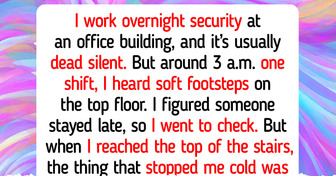
16 Stories of Mother-in-Law Kindness That Restored People’s Faith in Family
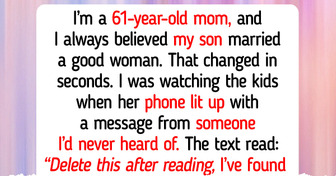
I Refused to Knit My Coworker a Free Blanket, and Now HR Is Involved
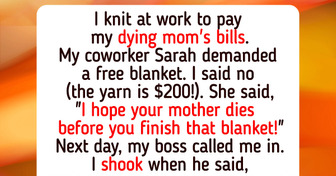
13 Stories of Quiet Kindness That Show Superhuman Strength in Ordinary People

My Sister Quit Her Job to Care for Our Sick Mom, Now She Wants More Inheritance
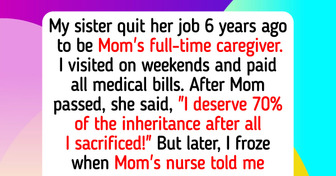
I Refuse to Let My Entitled Daughter Steal the Life I’ve Been Saving For
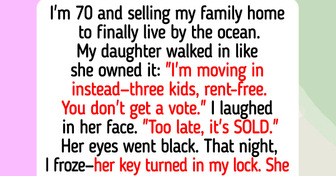
15 Moments That Prove Kindness and Compassion Are the Only Currencies That Never Lose Their Value

20+ Moments That Prove Quiet Kindness Is the Only Language Everyone Speaks
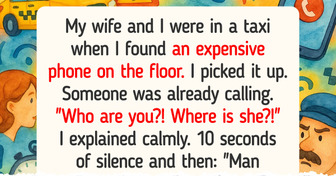
15 People Who Turned an Ordinary Day Into a Movie Without a Script
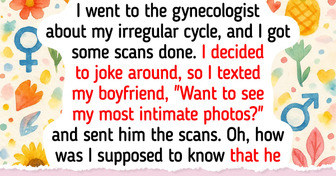
My Boss Stole My Idea for Our Biggest Client, So I Set a Clever Trap

15 Stepchildren Who Finally Saw Their Stepparents as Real Family
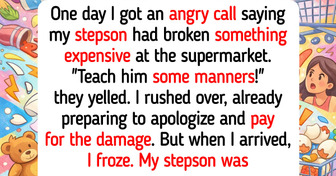
16 Shopping Stories That Prove a Trip to the Supermarket Can Be More Entertaining Than a Blockbuster Movie
